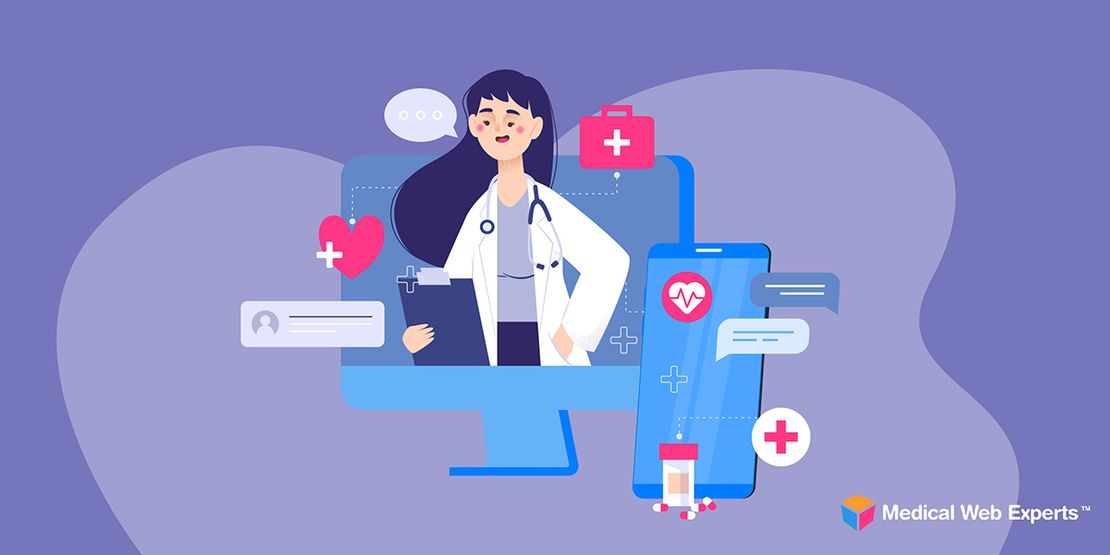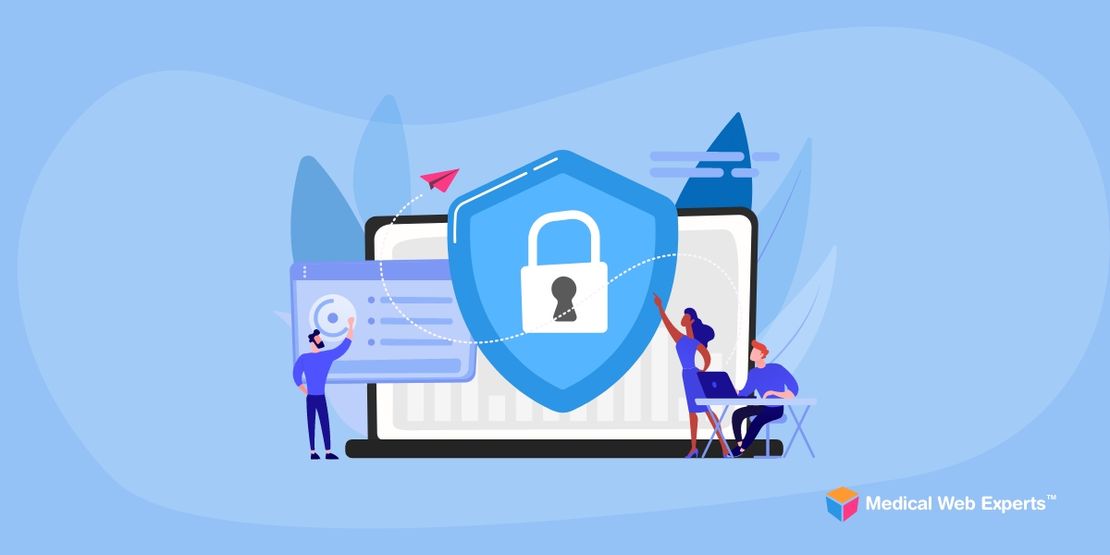Many healthcare organizations are seeking a means to develop their own healthcare or patient engagement solution, to positively impact patients’ health, and streamline clinical processes. Patients perform many of their day to day activities on their mobile phones, and now they want to be able to engage with their healthcare in the same way. SMS usage has become a preferred way of communication, as 96% of Americans own a cell phone, and text messaging is the most frequently used cell phone functionality. Healthcare providers that communicate with their patients via text message report high patient satisfaction, between 77% and 96%. It’s essential to make sure you are partnering with an experienced medical app development company with so much riding on a successful medical application. Here are six questions you should be asking when partnering with a medical app development company:
1. What is the app development process?
Does the prospective development company have a transparent development process? One that you can understand and track? Will the development company be designing your custom application from scratch, or is there a template they use to add features? If so, do you own the entire codebase of the developed technology or are some elements licensed software? Is open-source technology used as well?
It’s important that you, the customer, fully understand what goes into making your app, ensuring that your application is 100% your vision and not something scalped from another design. Can the company develop the features you require in your application? Some functionality you may want to look into for your feature-rich application include:
- Patient education
- Bill pay
- Rx refill requests
- Physician search
- Location search
- Pharmacy search
- Urgent care wait times
- Secure messaging
- Appointment scheduling
- Patient notifications/reminders
- CCDA based health summaries
- Lab results
- Patient forms and surveys
- News and events
- Symptom checker
- Video library
Image 1: Example of a development lifecycle used by Medical Web Experts
2. What’s their level of expertise in UI/UX design?
User experience and user interface design (UI/UX) are fundamental when it comes to application development. The greatest ideas for applications can fall short in reality if the app is unusable or is not intuitive to navigate. Top hospital app development companies recommend that clients build a graphical prototype of any app first, before actual beginning coding. Clients can conceptualize visually what their app should look like, how it should perform, and receive approval by executives and stakeholders. From there, developers can further optimize the design for user experience. Technologies such as Proto.io and Adobe XD are often used during this part of the process. Building a graphical prototype provides you and the hospital app development company with clarity about what you will ultimately be creating. Prototypes allow development teams to collaborate and iterate quickly and efficiently. Seeing as you built the prototype, there won’t be any surprises once you are presented with the final product.
3. Do they consider security?
It’s essential to select a development company that understands the required security measures within a healthcare app. Will your healthcare application have access to Protected Health Information (PHI)? If that is the case, there are multiple features required for healthcare app security, the protection, and confidentiality of collected health information. These features include:
- Encrypted database
- Provide Role-Based Access Control (RBAC)
- Password protection and MFA (multi-factor authentication)
- Audit trails
- Consent forms
4. What are the real costs?
Before you enquire about costs, you must know precisely what your company requires. Obviously, you need an app developed for your healthcare company, but have you completed the initial discovery stage of application development? Or do you need a company to engage in detailed research, discussion, and analysis of your idea? Once the app has been created, do you require the company to maintain or host the app? Ongoing support and maintenance costs are an important consideration. These costs typically amount to an annual cost of 20% of the originally developed application. If additional features are added to the original application or any other modifications are made in the subsequent years, the annual cost increases as the 20% is based on the total cost of the application, including new developments.
When it comes to analyzing their quote, make sure it encompasses all that you require, and there aren’t any charges you weren’t aware of or don’t understand. If you’re ever confused, ask. You want to work with a company that’s fully transparent about what goes into calculating cost. If a company doesn’t provide specifics you ask for, they’re probably not going to be transparent about other things when it comes to building your app. Familiarize yourself with the company’s pricing structure, do they charge hourly, or are their rates project-based?
5. Are they fully compliant?
Health apps are regulated to minimize their potential for harm, such as loss of personal health privacy, financial costs, and physical harm from delayed or unnecessary diagnosis, monitoring, and treatment. It’s essential that healthcare app development companies understand these regulations and how to develop compliant apps.
In order to create a HIPAA-compliant app, your developer needs to sign a BAA (Business Associate Agreement). A BAA shares the responsibility for all patient information that is received by the healthcare app development company or handled by the mobile/web application that they build.
A hospital app development company needs to know how to get an FDA regulated app approved. The FDA enforces the FD&C Act, which controls the safety and effectiveness of medical devices, including certain mobile medical apps. FDA defines a “mobile medical app” as a mobile software application that is either used as an accessory to a regulated medical device or modifies a mobile software into a regulated medical device. These mobile medical apps will be governed under the same rules that the FDA applies to other devices.
To develop an ONC/CMS Cures Act compliant application, developers need to include two technical certification criteria such as Electronic Health Information (EHI) export and standardized API (HL7® Fast Healthcare Interoperability Resources (FHIR®)). Developers also need to include two privacy and security certification criteria, including encrypting authentication credentials and multi-factor authentication.
6. Are they experts in healthcare app development?
When sourcing a medical app development company to create a healthcare app, it’s important to find one who has experience within the healthcare industry and has knowledge of the regulations therein. Data privacy is vital within any application, but more so within a healthcare application that may contain protected health information (PHI), therefore, subject to HIPAA regulations. Development companies working within the healthcare industry should have a history of developing applications, according to HL7, FHIR, and SMART standards. If you are still concerned about whether your chosen development company will be able to provide you with a healthcare app, reviews/case studies are a great indicator if they can provide you with what they claim.
There are several steps to consider when seeking a healthcare app development company to develop an application as a patient engagement solution or a mobile medical app. Whatever your requirements may be, contact us to discuss your project further.



